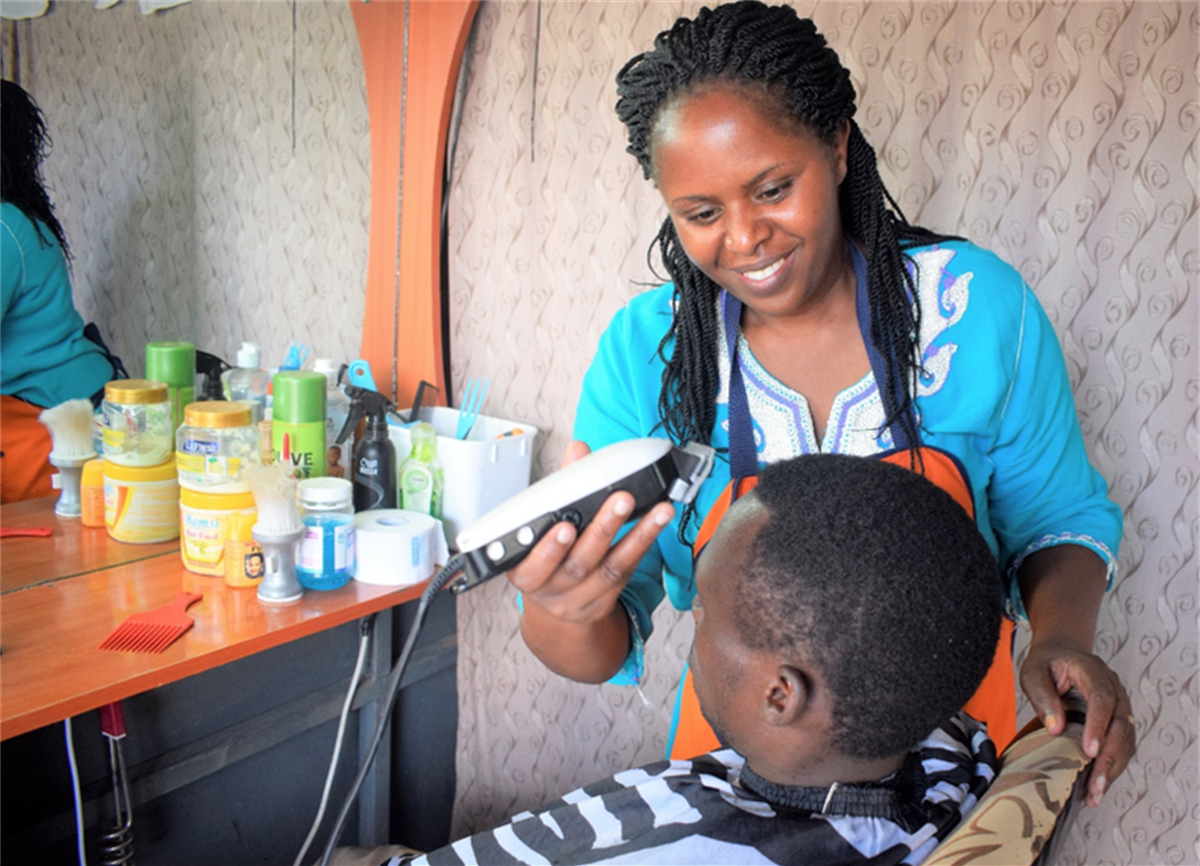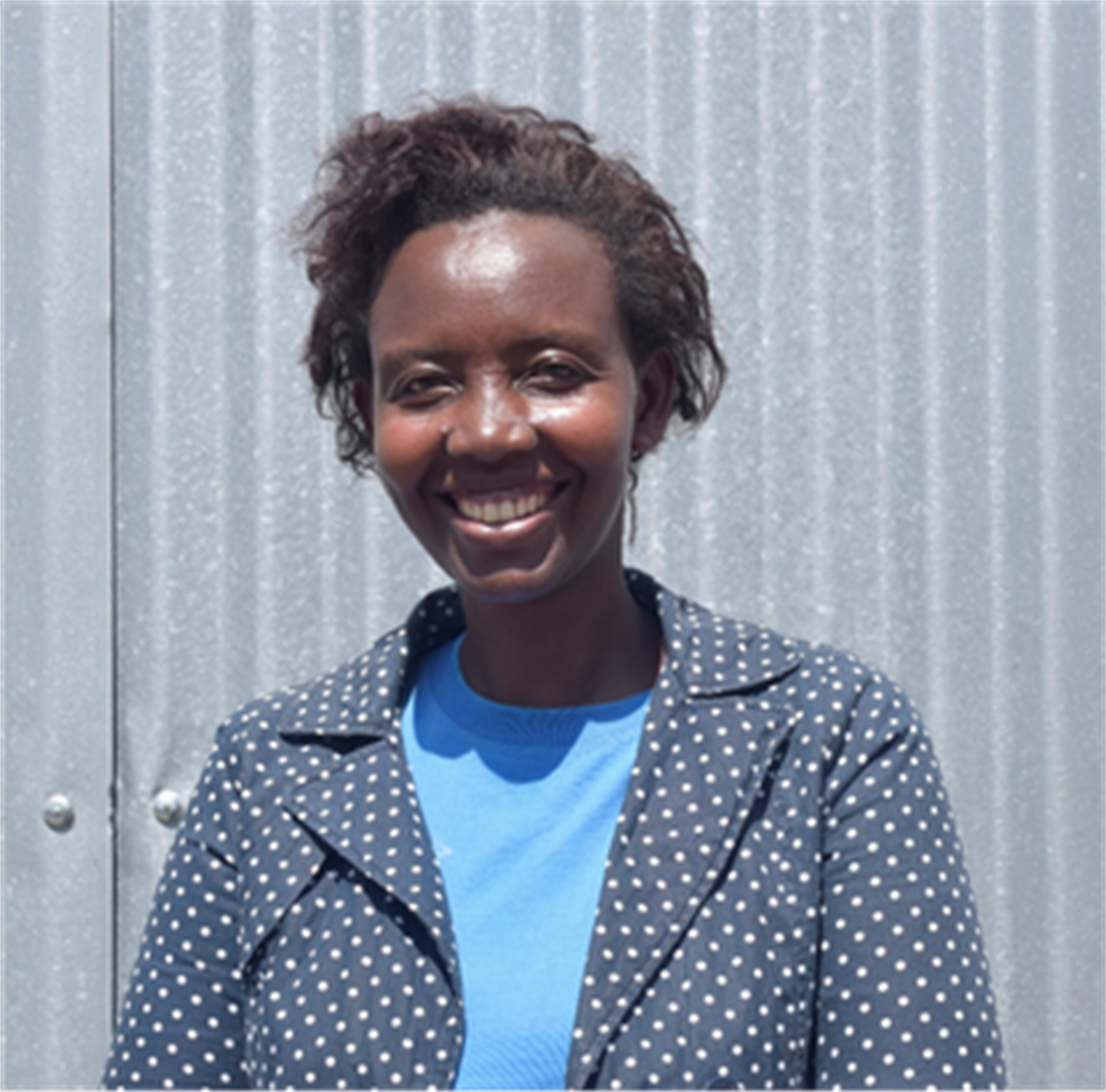Kenya is currently host to some 500,000 refugees and asylum seekers of which 65,000 live in informal settlements in Nairobi and its environs.
Urban refugee adolescent girls and young women are among the most vulnerable, facing many challenges, including abuse, poor education and high levels of poverty arising from lack of skills which block entry into the labor market.
With funding from UNFCU Foundation, AVSI seeks to enhance the social and economic resilience of extremely poor adolescent girls and young women in urban refugee and host communities in Nairobi, through the project Imarisha Jamii - a compound of two Swahili words, Imarisha (strengthen) and Jamii (community).
AVSI Kenya supports them as they build a path out of extreme poverty by engaging in business skills training and income generating activities. The action has 3 main objectives:
- Train 250 participants ages 13 to 35 on income generating activities and microbusiness management
- Support training and creation of savings and credit cooperatives
- Provide access to psychosocial services for 250 adolescent girls and young women, including parenting and life skills
The story of Uwimpuhwe Marie Josee, the entrepreneur mum owning a barber shop

Uwimpuhwe Marie Josee is from Masisi, Congo. She fled to Kenya with her two children with no education and source of income. Upon arriving in Nairobi, Josee met fellow refugees who directed her to seek help from AVSI.
“I wanted to learn about hair and beauty so I can earn an income and support my children,” says Marie Josee. However, going to beauty school meant leaving her children alone during the day without food. AVSI gave her the option of attending Business Skills Trainings once per week, which was more flexible and made allowances for her children.
The trainings are part of Imarisha Jamii project that is funded by UNFCU Foundation to empower urban refugees through strengthening vulnerable adolescent girls and women to successfully navigate social and economic challenges. Refugee women learn business and financial skills and are helped to form Community Savings and Lending Groups to be able to save and borrow money to start income generating activities.
Through the trainings, I learnt how to start and manage a small business. Having some prior training in hair dressing, I started making people’s hair and with the little money I received, I saved in the savings groups we had formed.
Uwimpuhwe Marie Josee, recipient of the Imarisha Jami project
Through her savings group, Josee has now been able to take a small loan to buy some equipment and set up a small barber shop where she attends to her clients.
“I am very grateful because I can now buy food, pay rent and school fees for the children, and I am also planning to expand and employ two people in the barber shop in the future.”
The story of Uwena Devota, mentor to refugee young women in Nairobi
Uwena Devota is from Nasisi Sake and fled to Kenya after the war in Congo. She is 35 years old and has 3 children. Devota is among the “female elders,” or mentor mothers, looking out for other vulnerable adolescent girls and young women in the refugee communities in Nairobi.
When she first came to Kenya, she had no one to help her. One day, she saw fellow refugees from Congo attending a meeting and decided to join them. The meeting was a Community Savings and Lending Association training that was being conducted by AVSI Kenya, with funding from UNFCU Foundation.

The training is part of the Imarisha Jamii project which aims to empower urban refugee women and adolescent girls through social and economic strengthening by offering workshops in creating income generating activities and saving groups. Devota asked if she, too, could be part of the trainings and started attending regularly.
I now know that if I have 200 shillings, I can save 20 in the savings group and it will grow in interest. I don’t have to borrow money from friends anymore
Uwena Devota, recipient of the Imarisha Jami project
She is now the treasurer of her saving’s group and plays a very crucial role among the other refugees. Devota has encouraged a lot of other young girls to join the savings groups to save the little they have.